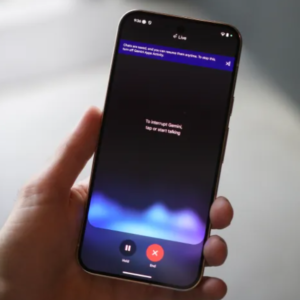Pixel 11a the Modified Tensor G6 Chip
The leaks reveal that Google aims to power the Pixel 11a with a modified version of the Tensor G6 chip, reportedly an adaptation of the full-fledged Tensor G6 used in Google’s flagship models. By refining this chip for efficiency rather than raw power, Google hopes to strike a balance between performance and energy conservation. For a mid-range device like the Pixel 11a, this strategy aligns well with the needs of users looking for reliable and long-lasting smartphones that don’t come with a flagship price tag. Google has increasingly optimized its chips for machine learning and AI functions rather than merely aiming to compete with high-end processors like Apple’s A-series or Qualcomm’s Snapdragon processors.
With this chip, the Pixel 11a could likely feature impressive AI-powered capabilities without compromising battery life—a crucial factor for users who favor the affordable Pixel “a” models. The modified Tensor G6 chip is expected to facilitate Google’s ever-expanding suite of AI tools, offering accessible features in a more compact and power-efficient package.
- Apple’s Wi-Fi Chip Could Power the iPhone 17 — What Users Need to Know
- Foldable iPhone Flip: The Clamshell Concept and What to Expect from Apple
- Pixel 9a Leak Shows Off Google’s Larger, Faster, and More Efficient Mid-Tier Phone
- Powerful New OnePlus 13 Boasts a Powerful 6,000 mAh Battery, Beating Galaxy S25 Ultra
AI-Powered Camera Features

One of the hallmarks of Google’s Pixel phones, including the mid-range models, is its photography quality. The Pixel 11a is rumored to feature enhanced AI-driven camera software akin to those found in its premium counterparts. For instance, Google has been refining its computational photography to bring better night shots, enhanced low-light capabilities, and improved image processing. The company’s advanced image processing algorithms, coupled with the Pixel Visual Core, will likely be optimized for the Pixel 11a, allowing users to take crisp and detailed photos without needing an array of high-end lenses.
The leaked documents also hint at the possible inclusion of “Video Generative ML” technology, potentially bringing flagship video quality to the Pixel 11a. This feature might include real-time video stabilization and frame enhancement, making it a standout for video recording even among budget-friendly models.
Display and Design

While the documents did not explicitly detail the Pixel 11a’s display, the trend with Pixel “a” devices has been to offer Full HD+ resolution on OLED screens. Given Google’s recent design choices, we might see a flat-edged display that prioritizes ease of use over flashy curves or high refresh rates, which are typically reserved for flagship models. Still, the Pixel 11a’s screen is expected to support HDR capabilities, making it a vibrant choice for viewing photos, videos, and streaming content.
The design language of the Pixel 11a may follow the same aesthetic as the Pixel 8 series with minimal bezels, a more compact build, and a rear camera housing that integrates seamlessly with the body. The goal appears to be to offer a lightweight, durable device that feels comfortable in hand and maintains the Pixel’s recognizable design identity.
Battery and Charging & Expected Release Date

Battery life is always a primary concern for mid-range users, and Google seems to be addressing this need in the Pixel 11a. The device is expected to include an upgraded battery with optimizations from the Tensor G6 chip for longer usage time. Additionally, the battery life might benefit from intelligent software enhancements that Google has incorporated into its Android builds, such as Adaptive Battery, which learns usage patterns to prioritize battery power for frequently used apps and features.
According to the leaked plans, the Pixel 11a is expected to launch in 2027 as part of Google’s ongoing expansion in the mid-range market. This device, like its predecessors, aims to cater to consumers who seek high-quality smartphones with essential features without the high-end price. With Google’s software and AI-driven approach, the Pixel 11a could attract tech enthusiasts and everyday users alike, particularly those looking for smooth software experiences and reliable device support directly from Google.
Our Final Thoughts
The Pixel 11a, if these leaks hold true, could become a popular choice in the mid-range smartphone market. With a blend of AI-driven photography, a power-efficient Tensor G6 processor, and Google’s ongoing dedication to software updates and security, the Pixel 11a may stand out as one of the most well-rounded devices in its category. Google’s strategy here seems to focus on offering refined user experiences without driving up costs, especially through tailored hardware and its Android ecosystem.
With the anticipated enhancements, the Pixel 11a could offer users a taste of flagship-level technology at a price that’s easier on the wallet—an appealing proposition for those who want Google’s latest innovations without breaking the bank. Stay tuned with us on Facebook & Instagram for more info.
- Google Pixel 11 May See the Return of Face ID Hardware — Here’s What to Expect
- iPhone SE 4 — Screen Sizes and Design Shine, but One Change Counts
- Android 16 Embraces Dynamic Notifications: A Game-Changer?

[…] Google’s Pixel 11a Plans Exposed — Here’s What the Leaks Tell Us […]